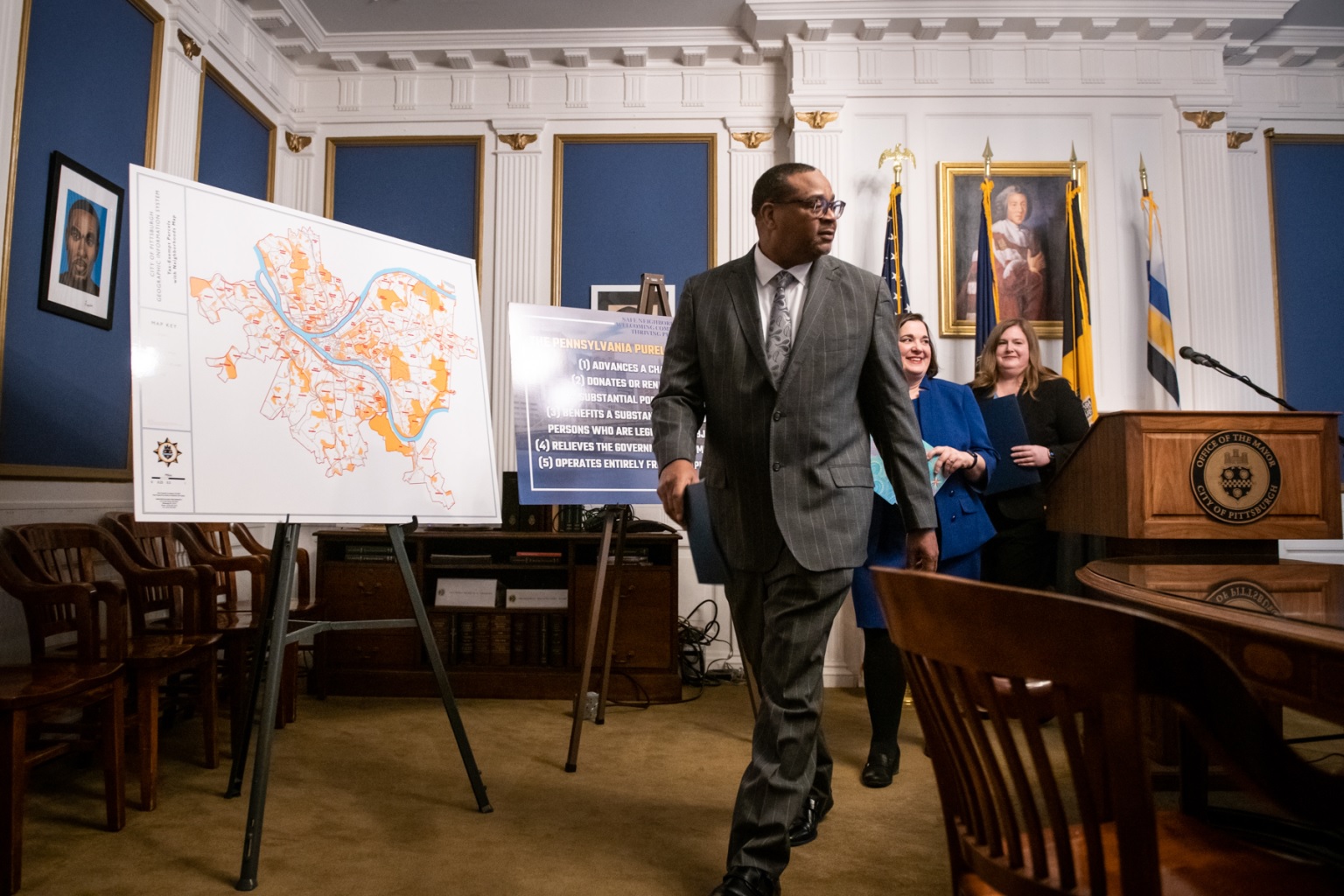From left, Pittsburgh Mayor Ed Gainey, Krysia M. Kubiak, chief legal officer and city solicitor, and Jen Gula, director of finance and treasurer for the city, walk past a map of the city’s tax-exempt property after announcing a review of those parcels on Jan. 24, at the mayor’s City-County Building offices in Downtown. Of all city nonprofits, UPMC has the most property up for examination in the process. (Photo by Stephanie Strasburg/PublicSource)
Providence inked a landmark, 20-year agreement with universities for voluntary payments. Pittsburgh gets hardly anything from its tax-exempt institutions, with no deal in sight.
Pittsburgh’s budget is set to tighten and its rainy day fund will dwindle in the next several years while the city collects less than half a million dollars per year in voluntary payments from major nonprofits.
Meanwhile Providence, Rhode Island this fall came to a 20-year agreement with local colleges that brings the city an average of more than $11 million per year, safeguarding the city’s finances and preserving good relations between municipal government and major institutions.
The agreement for payments in lieu of taxes, known as a PILOT, could serve as a model for Pittsburgh to pursue as it seeks greater contributions from nonprofit giants like UPMC, the University of Pittsburgh and others. But doing so would require a change of course: Pittsburgh Mayor Ed Gainey has taken a far more confrontational and fragmented approach than his Rhode Island counterparts.
Providence’s approach, centered around a group negotiation with all the involved colleges and a give and take of benefits, netted the city $59 per resident annually, on average. Pittsburgh’s proposed 2024 budget, by contrast, includes $1.44 per resident revenue from nonprofits’ voluntary payments.
Pittsburgh’s meager results are not for a lack of desire: Mayors have tried to raise revenue from nonprofits for decades. Gainey made the issue a centerpiece of his 2021 run for office, covering the campaign trail with promises to make UPMC “pay their fair share” to the city. But two years into his term, he has little to show for it.

How did Providence achieve what Pittsburgh seemingly can’t? Interviews with leaders in both cities show drastically different approaches, with collaboration and transparency winning the day in Rhode Island.

